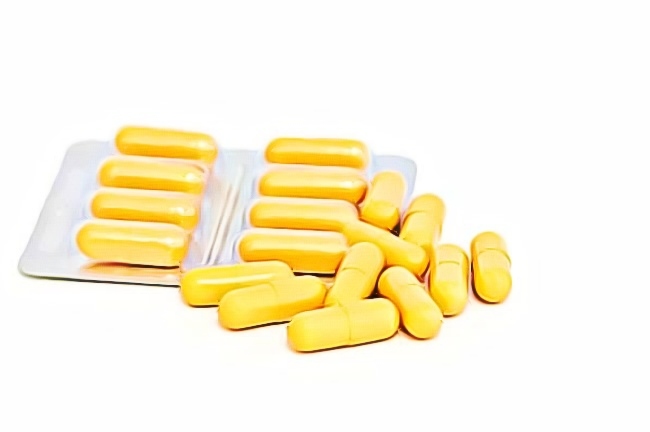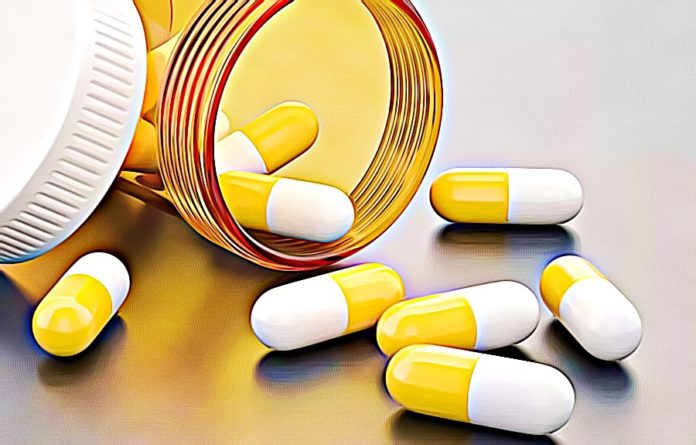Gabapentin is the brand name of a drug used to treat seizures, insomnia, and other problems that can develop into serious health effects. Due to its abuse potential, gabapentin is frequently sold on the street among heroin users under the names gabbies or gabbi. One study showed that it’s often used as a cutting agent in street heroin; this contributes to the potential for abuse and dangerous effects.
What Is Gabapentin?
Gabapentin is classified as a drug that is a first-generation or 1st gen. anti-epileptic drug (E-A-D) that’s marketed under the brand name Neurontin. It’s also sold as part of a product called Neurontin tablets, which contain gabapentin and other ingredients, such as acetaminophen (the active ingredient in Tylenol) and hydrocodone (the active ingredient in Vicodin).
This product was specifically created to treat pain but is also used to manage seizures and promote sleep. It’s been approved by the U.S. Food and Drug Administration (FDA) to treat certain types of seizures, and it’s an effective treatment for certain types of nerve pain.
How Does Gabapentin Work?
Rather than targeting the brain’s nerve cells, gabapentin works on the body’s nerves and receptors to block pain signals. But because it’s a 1st gen. drug, it’s not specific to the problem area; instead, it can affect the entire body.
What Are the Symptoms of Gabapentin Overdose?
The symptoms of gabapentin overdose can vary by the amount and frequency of use. The most common symptoms of an overdose are:
- Drowsiness
- Confusion
- Seizures
- Stomach pain
- Vomiting
- Blurred vision
- A lack of coordination
- A slow, erratic heart rate
- A feeling of calm
What to Do When Someone Overdoses from Gabapentin
If you’re with a friend who’s overdosed from gabapentin, you should call 911 immediately. If the person overdosed on gabapentin alone, it’s unlikely that they’ll need medical attention. It’s also likely that they’ll experience mild withdrawal symptoms as their body processes the drug.
If someone has overdosed on gabapentin and another drug, they may need immediate medical attention. The side effects of using gabapentin in combination with another drug can be fatal. If medical attention is needed, you can also help by staying with the individual who overdosed and calling their emergency contact.
What Are the Withdrawal Symptoms of Gabapentin?
If you’re addicted to gabapentin, your symptoms will be similar to any other drug withdrawal. As with any addiction, withdrawal may be the hardest part of treatment.
Severe withdrawal symptoms can include:
- Sweating
- Nausea and vomiting
- Shakiness
- Chills
- Headache
- Intense cravings
- Irritability
- Depression
- Seizures
- Dizziness
- Changes in weight
- Mood swings
- Anxiety
- Agitation
- Rapid heart rate
If you are experiencing any of these symptoms, you may be going through withdrawal. You may also go through withdrawal when you’ve stopped taking gabapentin after using it for a prolonged period.
How Long Do Withdrawal Symptoms Last?
The length of drug withdrawal can vary. Generally, the length of drug withdrawal depends on the specific drug you were addicted to and how long and how frequently you were taking it.
The length of addiction treatment may also influence how long your withdrawal symptoms last. You may experience several withdrawal symptoms during the first few days that usually peak within the first week. Most symptoms have subsided by the end of the first week.
However, some people may experience the lingering effects of withdrawal for weeks or even months after stopping their drug use completely.
What Are the Side Effects of Gabapentin?
The side effects of gabapentin can include, but aren’t limited to:
- Diarrhea
- Dizziness
- A loss of appetite
- A weakness in the arms or legs
- Restlessness
- Nausea
- Blurred vision
The FDA has also issued a warning about using gabapentin with other drugs that treat pain. The warning states that the combination can lead to a potentially life-threatening condition called Stevens-Johnson syndrome. The drug is also known for being addictive.
What Side Effects May Be Caused by Gabapentin Abuse?
The side effects of gabapentin abuse can include, but aren’t limited to:
- Dry mouth
- Nausea
- Shallow breathing
- Drowsiness
- Confusion
- Stomach pain
- Decreased urination
- Irregular or slowed heart rate
- Coma
- Death
Some of the side effects listed above, particularly those related to slower breathing or increased risk of death, can be fatal.
Because it’s a central nervous system (CNS) depressant, gabapentin can also make you feel drowsy and slow your reflexes. This can make it dangerous to operate a vehicle or other heavy machinery if you’re taking it for its intended use.

Is Gabapentin Addictive?
Yes. Gabapentin is highly addictive. It is considered a Schedule V controlled substance under the Controlled Substances Act. This acts as a restriction on how the drug is prescribed and how much of it can be taken.
Gabapentin has been abused by individuals who want to experience its euphoric effects. Its abuse potential can be heightened by its high concentration of gabapentin. In some cases, it’s mixed with other drugs to achieve the desired high. Because of the drug’s interaction with the brain’s neurotransmitters, abuse of gabapentin can also lead to symptoms of withdrawal upon discontinuation.
In the presence of other drugs, the risk of abuse and overdose is increased. Tolerance and addiction develop quickly, and regular use leads to dependence.
How Do People Abuse Gabapentin?
Gabapentin abuse can lead to serious side effects and an increased risk of addiction. The drug is most commonly abused because it can produce a euphoric or calming effect. This is what can make it appealing to anyone abusing this particular drug.
There are several ways to abuse gabapentin. Some of the most common methods are:
- Swallowing a pill whole
- Crushing a pill and snorting it
- Cutting gabapentin pills with another substance and snorting or injecting it
- Smoking or vaporizing gabapentin
Oral drug abuse is the most common form of abuse, particularly when the drug is taken in a pill form.
What Are the Treatment Options for Gabapentin Addiction?
Addiction to gabapentin can be overcome with professional help. The treatment options that are most effective for a gabapentin addiction will depend on the severity of your addiction and the severity of the side effects that you experienced while abusing the drug.
Treatment options for a gabapentin addiction may include any combination of the following:
- An inpatient treatment program
- An outpatient treatment program
- A dual diagnosis treatment program
- An intensive outpatient program
- An opioid treatment program
The most effective recovery program is one tailored to your unique needs.
The staff at an inpatient treatment center can provide you with 24-hour medical supervision, treatment, and medical care. Inpatient treatment centers can also provide you with the skills you need to overcome addiction. It’s a good option for individuals who are suffering from mental health issues and addiction.
Outpatient treatment centers also provide addiction recovery services, such as medically supervised detox. They may also give medications to help curb cravings and withdrawal symptoms, and they provide aftercare services that can help you maintain your sobriety.
If you prefer, you may also choose the treatment that’s provided through an intensive outpatient program. These programs offer similar benefits to inpatient treatment. Still, they can be more convenient for individuals who live far from treatment centers or have other commitments, such as a job or family, outside of treatment.
If you’re addicted to gabapentin, you may also want to seek treatment for the underlying mental health issues that led you to addiction in the first place. Dual diagnosis treatment programs can help you receive the treatment you need for many mental illnesses, including drug addiction.
Opioid treatment programs provide treatment for individuals who struggle with opioid addiction. Combining opioid medication and behavioral therapy can help you overcome opioid addiction and prevent you from returning to your addiction.
Sources:
https://pubmed.ncbi.nlm.nih.gov/26721643/
















